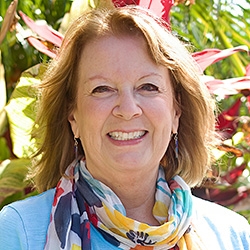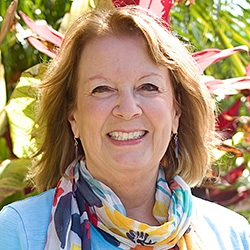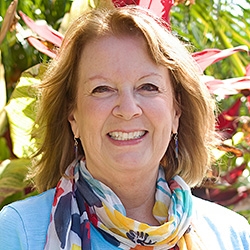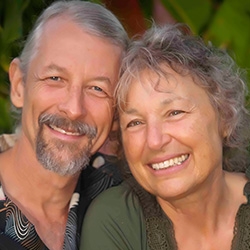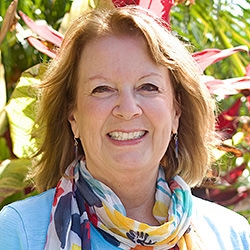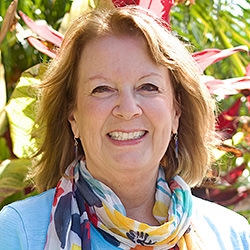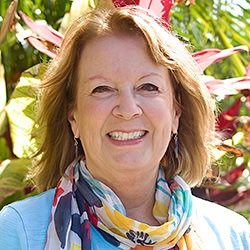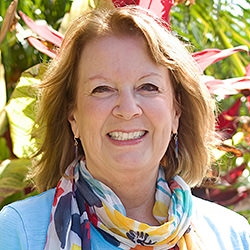

Search Results: nvc
-
Trainer tip: From the NVC perspective, everything someone says or does is either a “please” or a “thank you". In our culture, saying “thank you” usually involves an appreciation in the form of judgment or evaluation. Remember, whether we judge someone as good or bad, judgments and evaluations can create disconnect or tension. Instead, notice how their actions have enriched life, and what feelings it stimulated.
-
In NVC we define needs as resources that life requires to sustain itself. All human beings have the same needs. The strategy is what we do to meet that need. Strategies are specific; we all choose unique ways to meet our needs. The more we can see the difference between the two, the more likely we are to resolve conflicts with ease. Today, look for opportunities to notice the difference in the given situation.
-
Trainer Tip: Practicing NVC in situations that are not emotionally charged can give you valuable practice to help you maintain a compassionate consciousness when circumstances are charged. It can help you stay in that consciousness for a longer period of time. You can also practice by naming the needs that you got met in the situations you enjoy.
-
Read how an American Buddhist NVC teacher with Jewish roots reflects on how any dehumanization in the Israel-Hamas conflict can be used to justify all kinds of violence that can escalate for generations. With acknowledgment of the complexities, his desire is for us to bring in respect, dignity and peace -- for both Israelis and Palestinians. He emphasizes compassionate advocacy of all humanity amid the ongoing crisis.
-
Experience a deep process of self-connection and meaningful self-discovery.
-
Awaken your soul force and live from compassion and clarity while grounded in human needs.
-
Facilitate with care and clarity, hear all voices and address power dynamics.
-
- Focus on living from the inside out
- Bring a field of inner kindness to your inner distress
- Attend to your inner experience with compassion
- Cultivate an inner spaciousness of freedom
-
Uncover self-sabotage and release unconscious contracts through empathy and neuroscience.
-
By guessing our child's feelings and needs we open the door to understanding what's behind their behavior, and can better suggest solutions that meet both their and our own needs. In this way we build trust and their desire to seek us out in times of need. Expressing our own feelings and needs also allows us to help them understand the value in fulfilling tasks or requests.
-
NVC trainer Sarah Peyton explores the process of repairing relationships through the lens of Nonviolent Communication. She emphasizes the importance of self-connection and empathy—both for ourselves and others—when addressing moments of hurt or disconnection.
-
Trainer Tip: Persistence is key in NVC. A small shift in approach can make a big difference.
-
This handout defines and contrasts "empathy" alongside "responses may meet needs, but are not empathy" (such as advice, correcting, consoling, etc).
-
Being heard is a core human need. But what if you don't like what the other person is saying: how do you hold onto your awareness of their humanity? Find out in this demonstration from Kathy Simon's course, Connect Across Differences.
-
Yoram Mosenzon shares an exercise and demo to explore the process of identifying observations and using judgements (jackals) to find the needs.
-
Discover how NVC and Positive Psychology intersect to boost your capacity for fulfillment.
-
That is my mantra this year. It came to me when I was headed somewhere to do something that I had wanted to do, and yet I was feeling annoyed about it because traffic was heavy and overwhelming. I then gave myself a few moments of self-empathy where I connected to the deeper needs that were propelling me to do the thing in the first place. In an instant, my annoyance and looming resentment slipped away and I felt happy and relaxed.
-
It is 5:30 in the morning. I am sitting in a medical facility waiting for my wife, Kim, who has just gone in for a minor surgical procedure. I have only had a couple of hours of sleep and I can barely keep my eyes open. I am not very worried, but am a little worried about Kim. The kind of worry that happens to me when anyone I love (human or animal) is put “under” anesthesia.
-
Recently, I have been pondering anger, how I express it and the jackal story I tell myself about it. Marshall Rosenberg taught that anger is a natural emotion that is based on a judgment of someone else or myself. I agree with this, so I have been doing some “enemy images” and self-empathy work (and praying for those who are most likely to be the recipients of my anger). My goal was to clear my judgments and take responsibility for my “stuff.” It has helped a lot, and yet I still feel a general anger in me that is not directly related to anyone or any specific situation.
-
Last year, I planted my vegetable garden in February. It was an enormous amount of work to get it ready. This year, we decided to move the garden farther away from trees (to avoid the ongoing tree root issue and allow more sun). So, we created 4 new beds. Now, they are ready to be planted, and yet… forward momentum has stalled.
Quick Links

Stay in Touch!
We value your privacy, won't share your email address and you can easily unsubscribe any time.

